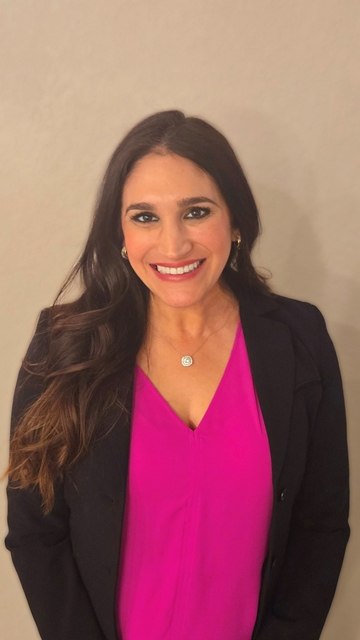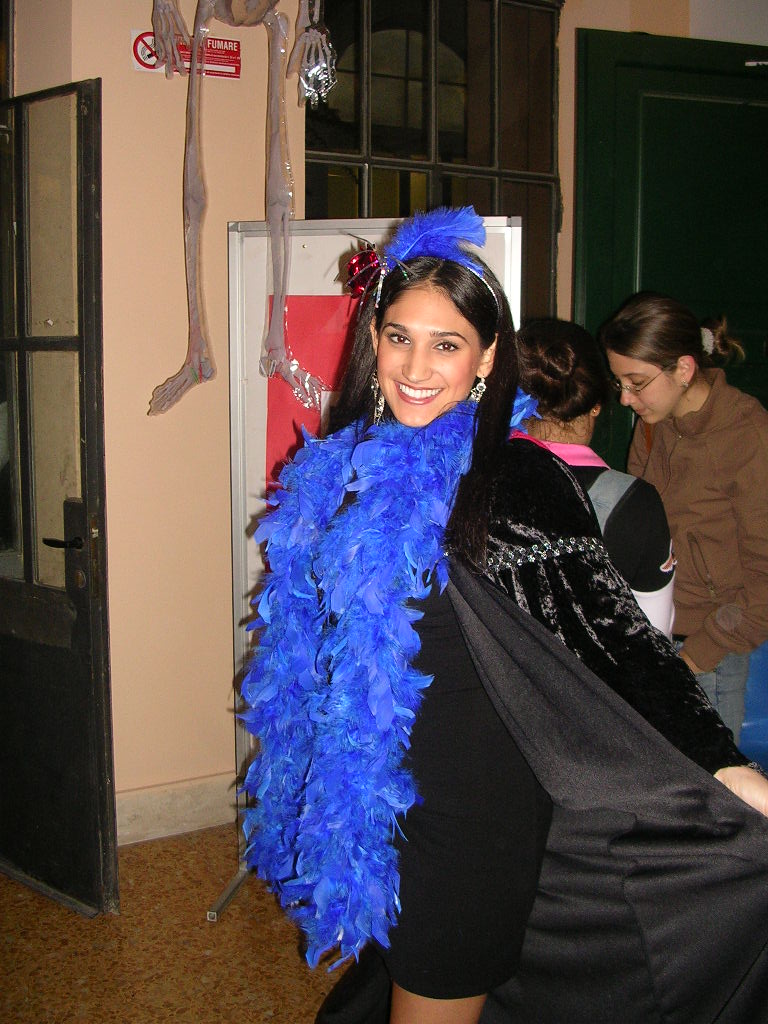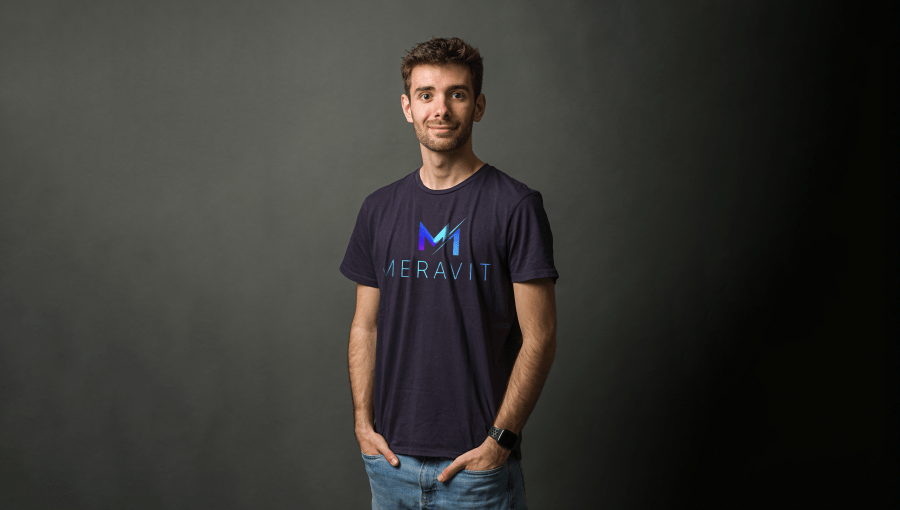Alumna Desiree Prieto Groft Publishes First Novel, Girl, Unemployed
Desiree Prieto Groft was born in Laredo, Texas, on the Texas-Mexico border, and raised in San Antonio. She has lived in Rome, London, Chicago, New York City, and Austin. She also calls California and Arizona homes, thanks to family and work. Desiree studied at John Cabot University in Fall 2003, Summer 2004, and Fall 2004. After earning her B.A. at the University of the Incarnate Word in Texas, she obtained an M.A. in English Literature at Texas A&M University-San Antonio and an M.F.A in Creative Writing at the New School in New York City. She is a writer and editor, specializing in writing about international and domestic travel with an emphasis on Europe. She teaches literature and writing at Arizona State University. Her first novel Girl, Unemployed is forthcoming in spring 2025.
Congratulations on the upcoming publication of your first novel! Is the book autobiographical?
Thank you! My life inspired Girl, Unemployed, so the novel has semi-autobiographical pieces throughout. I’ve poured so much of my heart into this novel, so the characters (and cities) are inspired by the people I love, some of whom are sadly no longer with us.
What inspired you to write it?
They say writers tend to write about the same things, and I would always write about “Women, Money, Jobs,” which was the title of my M.F.A. nonfiction thesis in grad school. My interest in those topics grew many years earlier when I lived in Rome during my early twenties in the early 2000s. That’s when I discovered commercial women’s fiction, a genre that was referred to as chick-lit back then.

2003 was the year Lauren Weisberger wrote The Devil Wears Prada. Around that time, I was living in JCU housing on Vicolo del Cinque above a creperia, and I just had to get my hands on that novel. So, in between classes, I walked to the Anglo-American Book Store near the Spanish Steps. I thought Weisberger’s novel was the best book at the time because it was about jobs. And I never understood why more commercial women’s fiction wasn’t about jobs. I mean, here we were after three waves of feminism, and women really needed jobs to be independent from men. Yet instead of commercial women’s fiction books being about jobs, they were about whether the young woman could hold it together just long enough to get noticed by the guy so he could pay for everything in the end.
So my novel passes the Bechdel Test (a set of criteria used to evaluate a work of fiction on the basis of its inclusion and representation of female characters) as the majority of my characters are women; there are no men who swoop in and save them, and the subject matter of Girl, Unemployed is about something other than men, marriage, and babies. It’s about Women, Money, Jobs.
Also, a big part of our job as writers is to find the extraordinary in the ordinary. And I think there’s something extraordinary about the everyday pursuit of work, even if it feels mundane and even if it feels like we’re failing. In reality, all those failures are just rough drafts on the way to something great.
Please name five literary works that have inspired you and why.
The first two books are by Edith Wharton: The House of Mirth and The Age of Innocence. My grad school professor, Dr. Ann Bliss, introduced me to Edith Wharton and The House of Mirth because of my fashion column at The San Antonio Current.
Edith Wharton was the first woman to win the Pulitzer Prize in fiction for The Age of Innocence in 1921. She wrote about the lives of aristocracy in the Gilded Age, and I was struck by how modern and relevant the mindset and language of the character Lily Bart are.
I also love writer Dorothy Parker, who many people know because she penned A Star is Born with her screenwriter husband in 1937. Dorothy Parker had a rough upbringing but became a prolific writer. I think that rough life inspired her cynicism and satire. She was among the first writers at publications like Vanity Fair and The New Yorker.
While writing my main character, Jess, I often thought of Edith Wharton’s Lily Bart and Dorothy Parker’s spirit. Jess has a cynical heart, and her remarks are often quite cutting. She also pleads to God sometimes, like Parker’s main character in the short story “A Telephone Call.” Jess is bitter and resentful about the Great Recession, so she takes issue with everything. Without spoiling too much, Jess eventually builds a strong community that can redirect her toward hope.
To name a few other novels and authors that are more commercial and of this century, I love Jennifer Weiner’s novel Good in Bed. It is about the protagonist’s struggle with insecurity, weight, and loss of love, all of which we can relate to as women.
I also enjoyed The Dirty Girls Social Club, as it was the first chick-lit novel I read featuring Hispanic characters and written by a Hispanic woman, Alisa Valdes-Rodriquez.
What are some tips for someone who wants to become a better writer?
The advice I received when I was younger was, “If you want to write, read.” However, my college courses required me to read books written a few hundred years ago, so I didn’t always excel in my English courses because such books didn’t always resonate with me.
It wasn’t until I started finding the authors who resonated with me that I started reading more. So, if you want to write, read, yes, and read widely, but find the genre that lights a fire in your belly. Writing is something you must be in for the long term, as short-term results don’t bear as much fruit. Finding your genre will inspire you to write your pages regularly. And you certainly need a lot of pages to get to something that sparkles like a diamond.

What made you decide to study abroad in Rome at John Cabot University?
After traveling internationally as a teenager, I wanted to live in Europe. I was looking into Spain so I could practice my Spanish. My study abroad director, Zach Wortham, encouraged me to consider Rome since we had a great sister school agreement with JCU. I remember naively thinking, “Well, I do love Italian food, so maybe I can start with Italy and head to Spain afterward.” I did travel to Spain, but I fell in love with Italy.
How was your experience at JCU? What kinds of courses did you take?
I took Italian language and many other courses, including a theater course I particularly loved with Professor Fiorenza Di Franco. I learned so much from her. She had such incredible stories about her childhood and being a holocaust survivor. Di Franco, her brother, and her Hungarian Jewish mother lived through a series of concentration camps, escapes, and periods of time in hiding. I can’t even imagine living through something like that as an adult, so I immediately respected her for such grit. She had a wealth of life experience and knowledge she enjoyed sharing with others. Her course focused on Realism and Modernism. She introduced me to Norwegian playwright Henrik Ibsen. After reading Ghosts, A Doll’s House, and Hedda Gabler, I wrote a long paper on Ibsen’s women.
I also loved Italian Cinema with Professor Peter Sarram. Before that class, I didn’t know much about Michelangelo Antonioni, Federico Fellini, or Vittorio De Sica, which is ridiculous because a lot of American culture and film were inspired by their work!
Were you involved in any extracurricular activities?
I was in Student Government as Visiting Student Representative. It was so rewarding and gave me a bigger purpose than myself to serve. While at JCU, I actually dressed up as the ghost of John Cabot—or Giovanni Caboto in Italian for a Halloween party we organized!
Tell us about your position teaching literature and writing at Arizona State University. What do you find most challenging and most rewarding about your work?
The most rewarding experience is working with the students and making a difference in the younger generation’s lives. However, the most challenging part is that I teach accelerated online courses. So, I’m grading a lot, and I make it a point to leave detailed notes on papers for students because I always hated when professors wrote very little on my papers while I was in undergrad and grad school. Unfortunately, you can’t always detect tone through online comments, so I prefer to meet with students on Zoom or in person. But I always tell my students that my comments come from a place of compassion and that even I still get constructive criticism from my peers, superiors, and audience.
How are you dealing with the availability (and inappropriate use) of AI to students, as well as instructors?
I don’t allow AI/Chat GPT, which I have noted on my syllabi. Students must run their papers through the “Turnitin” software upon assignment submission, which flags lines for plagiarism. Unfortunately, the software doesn’t catch AI. But it’s always a red flag when the software generates a report that says 0% because it should always flag lines from primary and secondary sources. Typically, papers written by AI are robotic and general as they make sweeping statements and don’t always dive deeper by providing quotes from primary or secondary sources to support the assertions made throughout the paper.
What are your plans for the future?
My plans are to publish book two and maybe book three of my series and to continue teaching. And if we’re talking about my dreams here, I would buy a little place in Trastevere, too. I would love to come back home to Rome and write every year. My daughter could grow up learning Italian.





